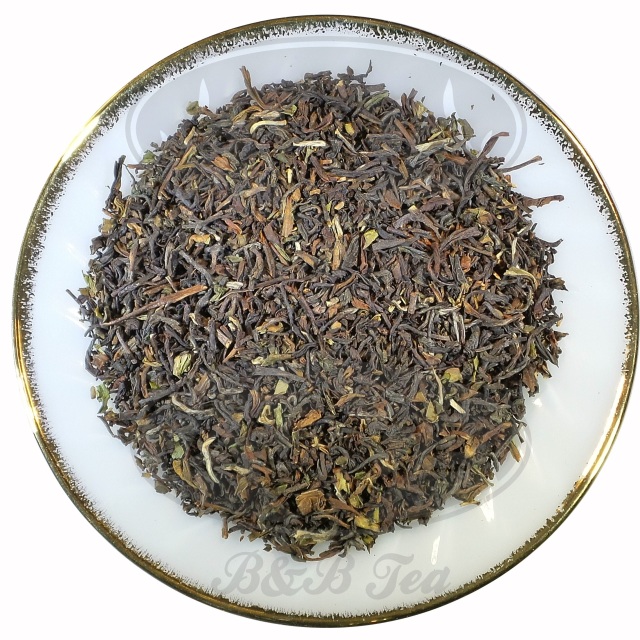- Black Teas
- >
- Margaret's Hope Darjeeling
Margaret's Hope Darjeeling
SKU:
$1.25
1.25
29.25
$1.25 - $29.25
Unavailable
per item
Description
A delicate tending astringent cup with the distinctive ‘Muscatel’ character. Hints of currant create an almost wine-like taste.
Tell Me MoreDuring the 1930's the garden was owned by Mr. Bagdon who lived in London but visited the tea garden regularly. He had two daughters. The younger daughter named Margaret; who when she saw the tea garden fell in love with it, hoped one day she would have an opportunity to return. Sadly she fell ill on board ship during the return trip to England and died soon after. In her memory, her father changed the garden's name to Margaret's Hope. It is believed that she visits the estate bungalow from the western side, coming through the main guestroom and leaving from the study through the veranda to the tennis courts.
The bushes at Margaret's Hope are almost entirely the Chinese Jat (genus) accounting for the green leafed tippy appearance of the manufactured leaf and the superb fragrance. Because the tea is grown at such high altitudes and in relatively cool weather the bushes do not grow quickly, and as such the production is limited. The best time of the year for quality is during 'second-flush' (end May - end June). During this time Darjeelings are incomparable to any other tea in the world. The fragrance and taste is a complex bouquet that reaches right out of the cup. Some would describe the taste as nutty; others find it reminds them of black currants, but most often it is described as similar to the taste and fragrance of muscat grapes. The are 3 main times of year for producing good quality Darjeelings: 1st flush - Springtime harvested teas from late Feb. to mid April. The young leaves yield a light tea with generally intense muscatel with 'point'. A gentle afternoon tea. 2nd flush - Harvested in June, these teas are more fully developed. The liquor is bright and the taste full and round excellent muscatel. An superb afternoon tea that is especially good with scones and raspberry conserve. Autumnal - Not always available depending upon the weather, they are typified by a round taste and coppery liquor. Excellent as a breakfast tea. |
Brewing for Best ResultsIdeal Brewing Temperature: 209°F/98°C.
Minimum Brewing Temperature: 194°F/90°C. Bring filtered or freshly drawn cold water to 209°F/ 98°C. Place 1 slightly heaping teaspoon of loose tea per 8 oz of fluid water. Steep 3-5 minutes according to taste (the longer the steeping time, the stronger the tea). Acceptable Pairings: Milk / Sweetener / Lemon / Mint |
origin
Tea(s) From: India Region(s): Darjeeling ingredients
Luxury Ingredients: Black tea iced tea instructions
Per Serving: Bring filtered or freshly drawn cold water to 209°F/ 98°C. With and infuser, use 1 slightly heaping teaspoon of loose tea per 6-7 oz of fluid water. Steep 5 minutes. Add filtered hot tea to 16 oz glass filled with ice. (Some luxury teas will turn cloudy when poured over ice). Per Pitcher: Makes 1 Quart. Bring filtered or freshly drawn cold water to 209°F/ 98°C. Place 6 slightly heaping teaspoon of loose tea in a heat resistant container. Pour 1 ¼ cup of prepared water over the tea leaves. Steep 5 minutes. With a fine mesh sieve, filter the hot tea liquor to the serving pitcher filled with ice. Add cold filtered water to top off. (Some luxury teas will turn cloudy when poured over ice). brewing tips
Making an amazing cup of tea requires several things. High quality tea, filtered or freshly drawn cold water, correct water temperature, time of infusion, and filters/infusers. Unfiltered water or too hot of water can ruin the best of teas. Always use filtered or freshly drawn cold water. Any flavor from water treatments or heavy minerals such as lime or calcium can taint the water. Brew at the ideal temperature. Too hot of water can scorch the leaves and produce a bitter brew. If you find that the tea is still bitter following the recommended brewing temperature, try lowering the brew temperature another 5 to 10 degrees. Use infusers that allow the tea leaves to fully expand and has full contact with the water. Ditch the tea bags. Know the steeping time for your tea. Too long of steeping can make your tea bitter and undesirable. Too short of time will make a weak tea. Don’t make tea in the microwave. food safety
We strongly recommend using filtered or freshly drawn cold water brought to a rolling boil when brewing all types of tea. Today’s water has been known to carry viruses, parasites and bacteria. Boiling the water will kill these elements and reduce the potential incidence of water-borne illness. Cool the water to the ideal brewing temperature before brewing. |

